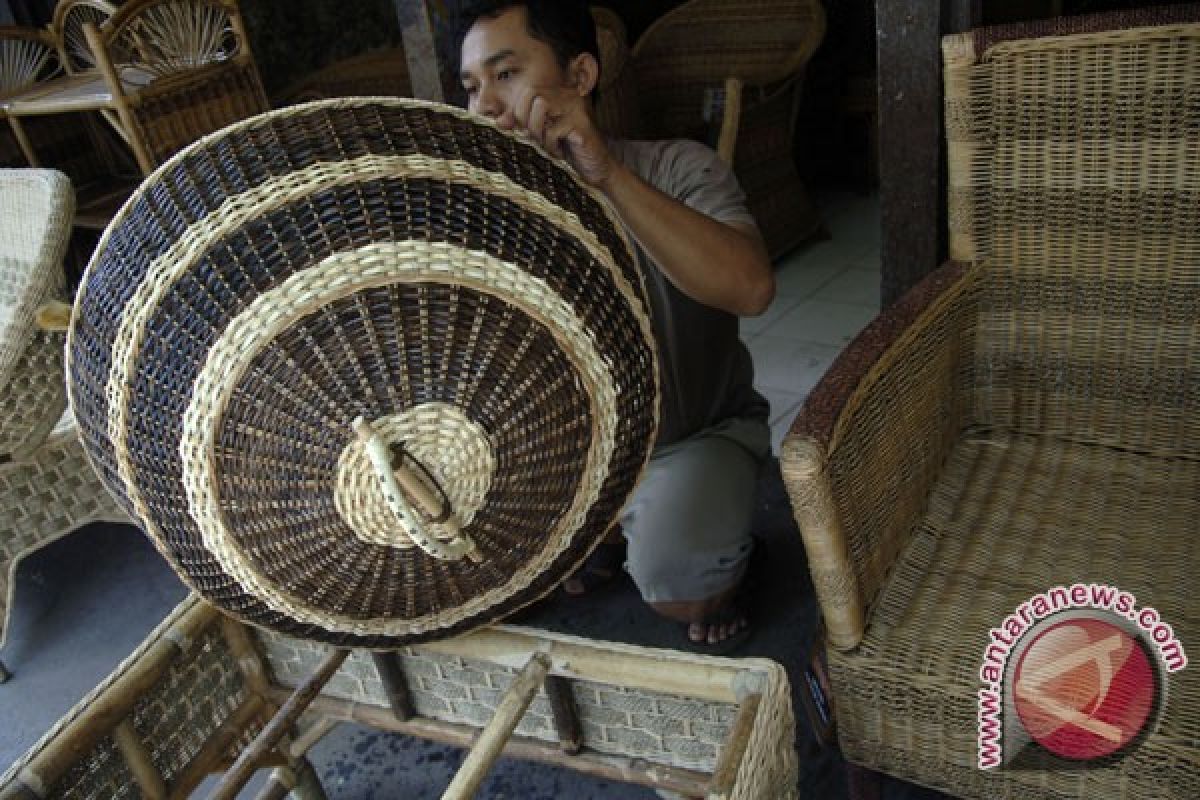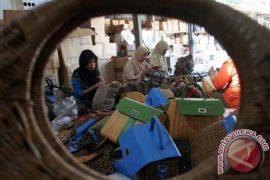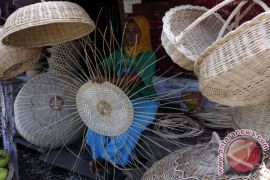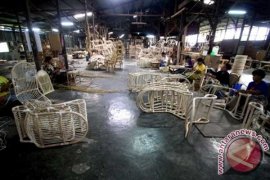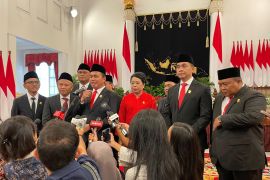Trade Minister`s Decree No. 36/ 2009 which rattan farmers consider to have failed to bridge the gap between the different interests of farmers and rattan furniture industries will expire next week.
The government will issue a new decree on rattan exports but it appears it will be not different in substance from the previous one, even through the government wants to further tighten raw rattan exports.
"The new ruling will continue to adhere to the domestic market obligation (DMO) principle. So, the interest of investment at home will remain the focus while some provisions will be further tightened and controlled," Director General for External Trade Affairs Deddy Saleh said here on Friday.
Rattan farmers have complained about the government policy so far because it reduced their rattan exports while their stocks at home, they said, were sometimes not absorbed by local industries.
Last year, Lisman Sumardjani, chairman of the Indonesian Rattan Business Foundation (YRI) said that the export restriction was actually also restricting the farmers` rattan because they could not sell their products to furniture industries which were not required to purchase the farmers` rattan.
Trade Minister`s Decree No. 36/ 2009 on rattan export restrictions did not bridge the interest between farmers and rattan furniture industries, he said.
Now, the government will issue a new regulation on rattan export to substitute a previous trade minister`s decree which will expire next October 11, yet it seems that it will further tighten its restriction on rattan exports.
That is because according to Director General Deddy, the new regulation is in essence the extension of the previous trade minister`s decree, which will protect industry at home.
He said that the government would issue rattan export licenses only if there was a guarantee on the availability of stocks that could meet the need for the commodity of industry at home.
"We will not issue export licenses if the need of local industry for raw rattan could not be met due to lack of stocks. So, it will depend on the need at home. If rattan could be absorbed at home, there is no need to export it," the director general said.
Deddy said that in the new regulation the government would tighten provisions on the issuance of rattan export licenses.
He said that based on the trade minister`s decree No.36/2009, registered rattan exporters (ETR) could be granted rattan export approvals for the exportation of "washed and sulphurized (W/S) and semi-finished rattan, particularly rattan of the Taman/Sega and Irit types.
Rattan exporters of this type can get approvals only by enclosing documents (proof) on their rattan stocks, production capacity (for those who have never get export license /SPE) and export performance for at least three month (for those who have owned SPE).
Approvals are also given to exporters of semi-finished rattan, which is not of the Taman/Sega and Irit types. In this case, they have to enclose documents ( to prove) that they have supplied raw rattan to domestic producers of finished rattan goods for three months, and recommendations from the directorate general of forestry production development of the ministry of forestry.
In the new regulation, according to Deddy, besides the requirements above, registered exporters are also required to enclose sales tax notices that have been endorsed by surveyors at ports of shipment and destinations.
He said that the tightening was to be imposed because there was evidence of practices that manipulated data on their supplies to industries.
The government is also considering a proposal on the establishment of a body which will manage rattan buffer stocks to ensure the availability of raw materials for domestic industry.
Yet, he said, provisions on the buffer stocks and the body which would manage them could not yet be included in the new regulation because they are still in deep discussions.
"It cannot yet be included in the new regulation because we do not need rough concept but well done one which is ready to be implemented for a long period, including the body and its financing," the director general said.
Earlier, several parties called on the government to revise rattan export regulations as contained in the trade minister`s decree No. 36/ 2009.
Business Competition Supervisory Commission (KPPU) saw that several provisions in the decree hampered the growth of rattan exports and rattan industry, calling on the government to revise it.
World demand for rattan-based furniture and rattan-made handicraft products are relatively high, where in 2008 and 2009 reached around US$100 and US$104 billion.
Of the total market share, Indonesian rattan-based products could only reach 2.6 billion dollars in 2008 and 2.3 billion dollars in 2009. "This indicates that the market for rattan-based products was virtually wide open. We need to take advantage of the available market," Chairman of the Indonesian Rattan Business Foundation (YRI) Lisman Sumardjani said.
He said that the absorption capacity of the domestic market for locally made rattan products was only about 30,000 - 40,000 tons this year, or about 50 percent of the country`s production capacity of 696,000 tons.
In a discussion on rattan trade regulation early this year, Ahmad Ramadhan Siregar of the KPPU said that the rattan regulation contained provisions on export restriction that would eliminate the economic potentials of country`s rattan business.
He said that the imposition of rattan export quota had caused surplus of stocks which could not be absorbed when demands of domestic industry were declining.
The KPPU suggested that the government in deciding rattan export quota should refer to rattan sustainability potentials, ability of upstream industry (to provide stocks) and domestic absorption capacity based data which underwent periodic updates.
(T.A014/HAJM/S012)
Reporter: by Andi Abdussalam
Editor: Priyambodo RH
Copyright © ANTARA 2011
